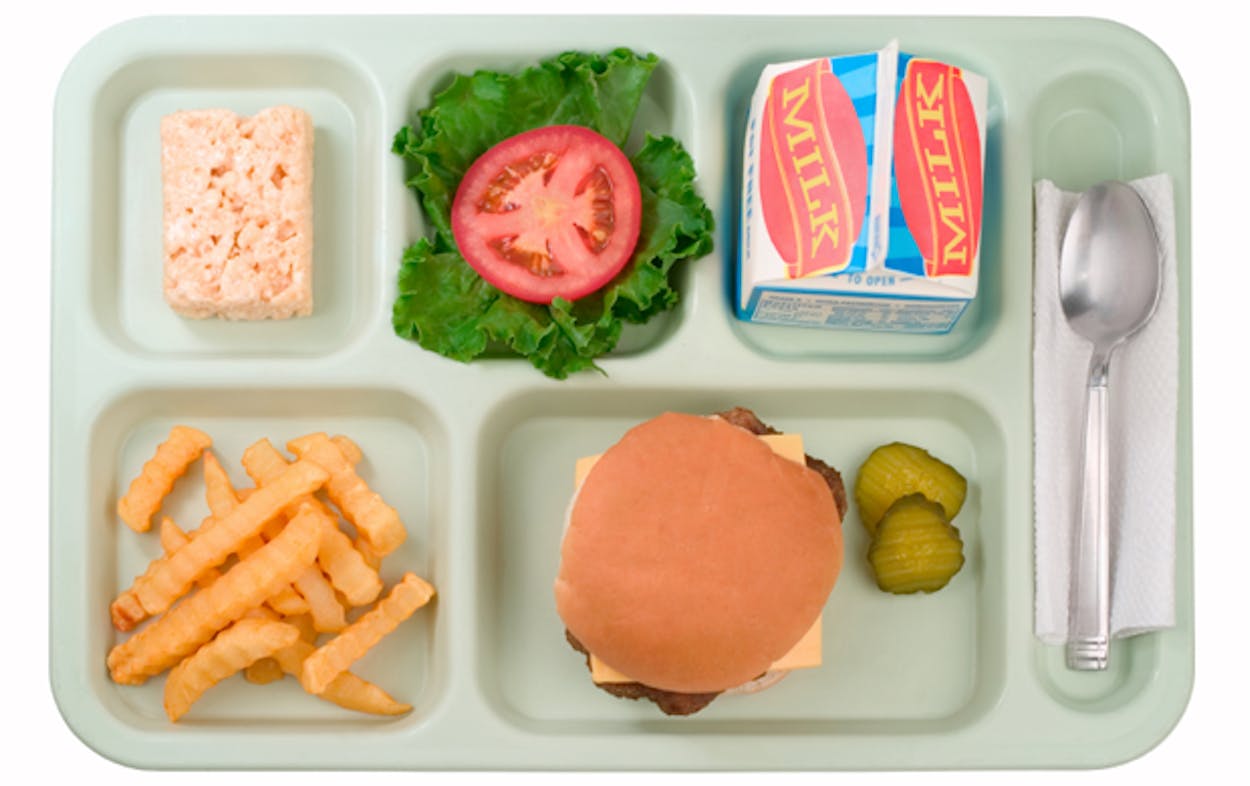Destiny Bowser, an Austin woman worried about her prisoner father’s health, penned a petition on Change.org asking state prisons to again feed prisoners three square meals a day on weekends, Richard Connelly reported at the Houston Press blog Hair Balls.
In an attempt to tighten belts—figuratively—the Texas Department of Criminal Justice announced the shift to weekend “brunch” in October, the New York Times reported. TDCJ hopes to shave $2.8 million off the department’s food budget.
Destiny’s father, Blake Bowser, is serving a 42-year sentence for a 1999 murder, according to the Texas Tribune’s prison inmate database. He is one of some 2,400 prisoners at TDCJ’s Eastham Unit, a working farm, in Lovelady. Bowser’s father takes liver medication that causes him to lose weight. “Now that he is not receiving enough food to eat it is impossible for him to stay healthy,” she wrote.
Bowser’s original petition has amassed more than 4,100 signatures as of this writing, and she’s even started a second one that takes a slightly different approach, asking the American Correctional Association to pull accreditation from any institution that feeds only two meals a day. “Reducing meals for prisoners is inconsistent with the standards adopted by the American Correctional Association. The association recommends serving three meals per day in adult prisons,” she wrote.
Josh Armendariz, a commenter on Hair Balls, was unmoved by Blake Bowser’s situation: “I don’t even eat three meals a day…because I wake up early to go to work, instead of wake up and kill people. Tell your dad he’s welcome for the meds.”
Some suggested other ways to get the budget back on track. On Twitter, @GatedCommunity1 pointed out that guards can enjoy a free meal anytime they want. And back in January, Grits for Breakfast’s Scott Henson blogged about the quiet reduction in TDCJ’s food budget that has been ongoing since fiscal year 2009 and offered another way to trim: “Food costs are rising, so that leaves reduced quantity or quality as the only real ways to save money on that line item – unless, of course, the state decides to simply reduce the total number of people it’s feeding three times per day.”







